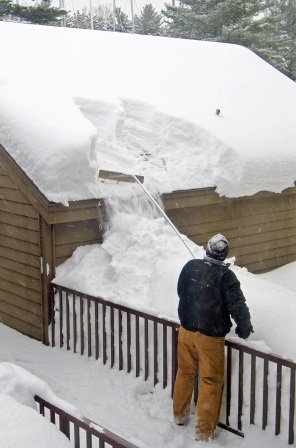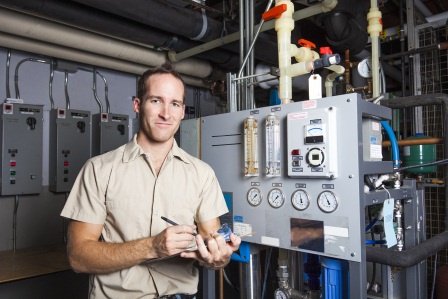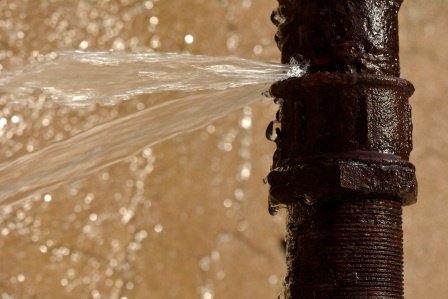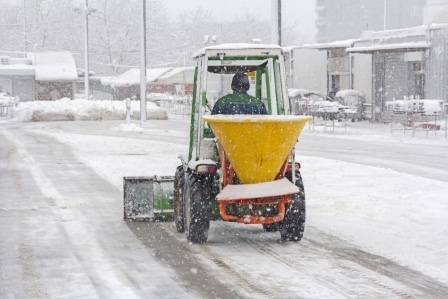Whether you get your long-term winter weather forecast from a meteorologist or a groundhog, it’s usually hard to trust their judgment – no matter how sophisticated their methods may be.
Your approach to prepare your business for adverse weather, however, can be straightforward and all-encompassing.
The best solution for determining how to maintain your business during winter is to make the assumption that your facilities can withstand the worst Mother Nature throws at it.

Neglecting the well-being of your business’s physical structure could leave you out in the cold when it comes to repair costs. More importantly, if the damage to your building is significant, you may be forced to close until repairs are made – meaning that you’ll miss out on serving your customers and generating revenue.
Knowing common problem areas in commercial buildings can help you identify potential issues before they get worse.
Make sure these parts of your property are accounted for as you maintain your business during winter:
Roof
If your roof is sloped, installing heating cables on the bottom is an easy and efficient way to melt any excess snow or ice that begins to accumulate. This will allow any water to run off as it normally would during warmer months.
When snow begins to pile up, a “roof rake” is a simple solution for giving your roof some relief. However, if your roof isn’t in good repair in the first place, the water could still be a detriment to the rest of your facilities.

Obvious holes and cracks – along with troubled caulking and flashing – should be patched and repaired immediately. If your roof is flat, be aware of any areas of pooling water, which could signal a weak spot.
Even if precipitation isn’t leaking into your building from this accumulation, the overall weight could weaken your roof enough to eventually cause a collapse. Having a fully functional drainage system is a must during every season.
The most important takeaway to prevent buildup is that you need to actively clean your roof and drains of any debris.
High winds, ice, and snow can snap branches on trees that are adjacent to your building, so it’s important that you check your surroundings often. If it’s cold for a prolonged period of time, make sure there isn’t excessive ice building up in and around your drains, either.
HVAC
Your best defense against heating system malfunctions is to ensure that your system is maintained all year long. This includes doing a test of your heating system during the fall before you actually need to use it.
Once many businesses start running their heating system for the season, they let it run non-stop until the cold weather subsides for good. This puts a lot of stress on the system, so you may need to replace certain parts like air filters for everything to run smoothly.

And while your air conditioning unit won’t be running, the same principle of year-long maintenance applies to this system as well.
Strong winds and heavy snow can cause considerable damage to the condensing unit of your A/C, so it’s important to keep it covered during harsh winter weather conditions.
Also, remember to clear the area of any debris that may have accumulated near the unit during the fall and summer months, such as leaves. In order to prevent moisture from collecting around the unit, make sure that the tarp you cover it with is made out of a breathable material.
Pipes
The biggest threat to your pipes during winter isn’t just that they can freeze, but they can also burst.
Because of this danger, it’s important to insulate pipes that are exposed, regardless if they are hot or cold lines. Proper insulation throughout your building can also save a considerable amount on your utility bill.

If pipes do freeze, open the faucet and then use a space heater, heat lamp, or even a hair dryer to attempt to thaw them before they burst. Once the thawing beings, keep your faucets open so that water can properly move through the line, preventing a rupture or a burst pipe.
You are also well-advised to let all of your faucets constantly drip during extremely cold weather. The constant movement of the water will help prevent your pipes from freezing.
Parking Lots and Walkways
Make sure you are always well stocked with sand and ice melt (salt) throughout the winter. Apply it regularly and if your supply runs low, try and stock up before the next storm is forecasted.
If walkways have slick spots, be sure to communicate that to your customers – the last thing you want is a slip-and-fall lawsuit on top of any other repairs you may have to make.

Hire a reputable and punctual plow service that can clear your parking lot shortly after each snowfall. After selecting a plow company, don’t forget to ask them for a certificate of insurance and that your business is listed as an additional insured on their liability insurance.
Final Word
Remember that you are a jeweler and businessperson first and foremost.
Unless you also happen to moonlight as an electrician, plumber, heating and cooling specialist, or other skilled laborer, tackling complex maintenance tasks should be left to these professionals.
Attempting to complete a large-scale do-it-yourself project could actually exacerbate the damage done to your building – not to mention you could also put yourself and your employees at risk of being injured.
If you don’t have a “go to” contractor, these tips can help you select one.